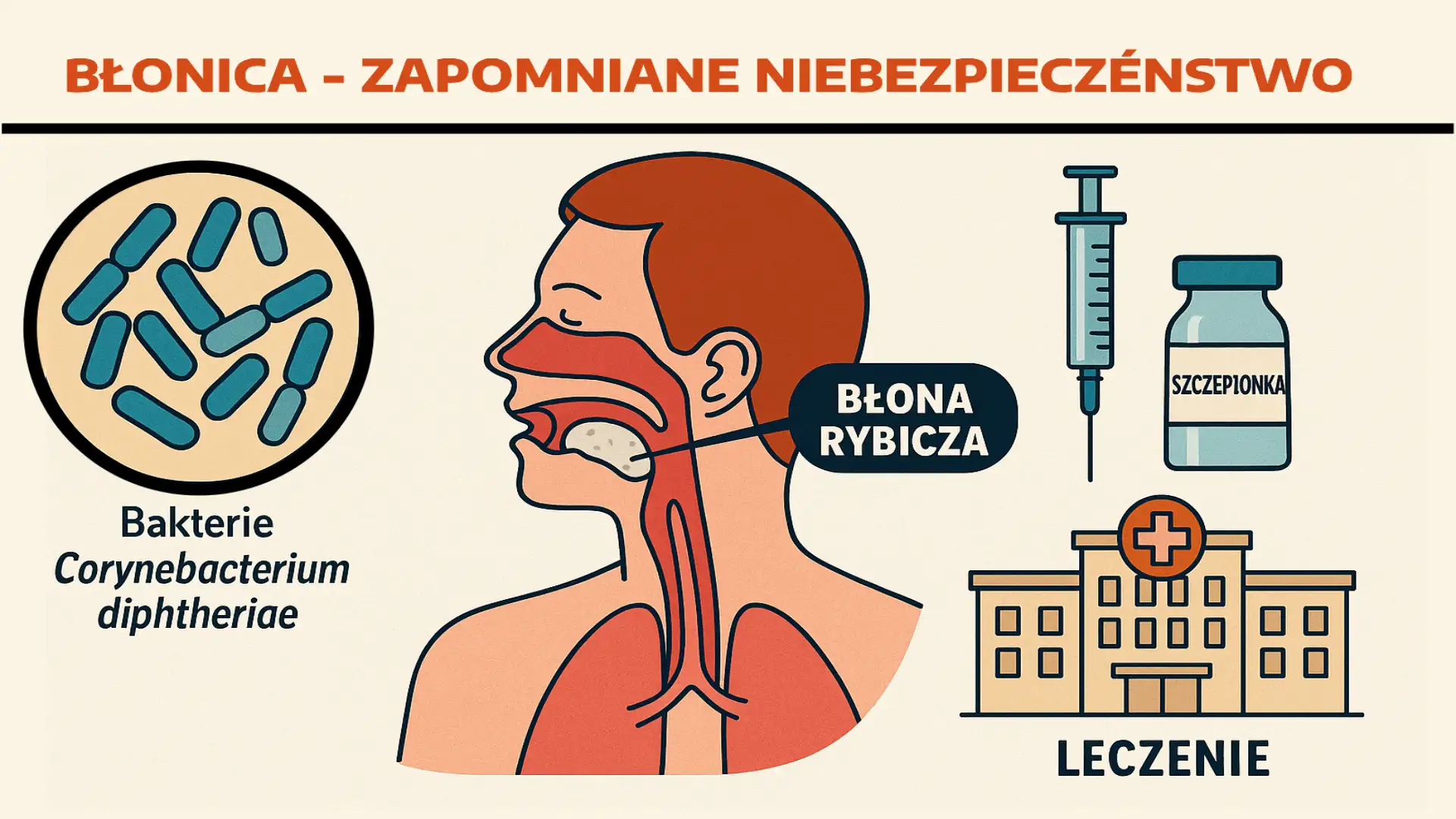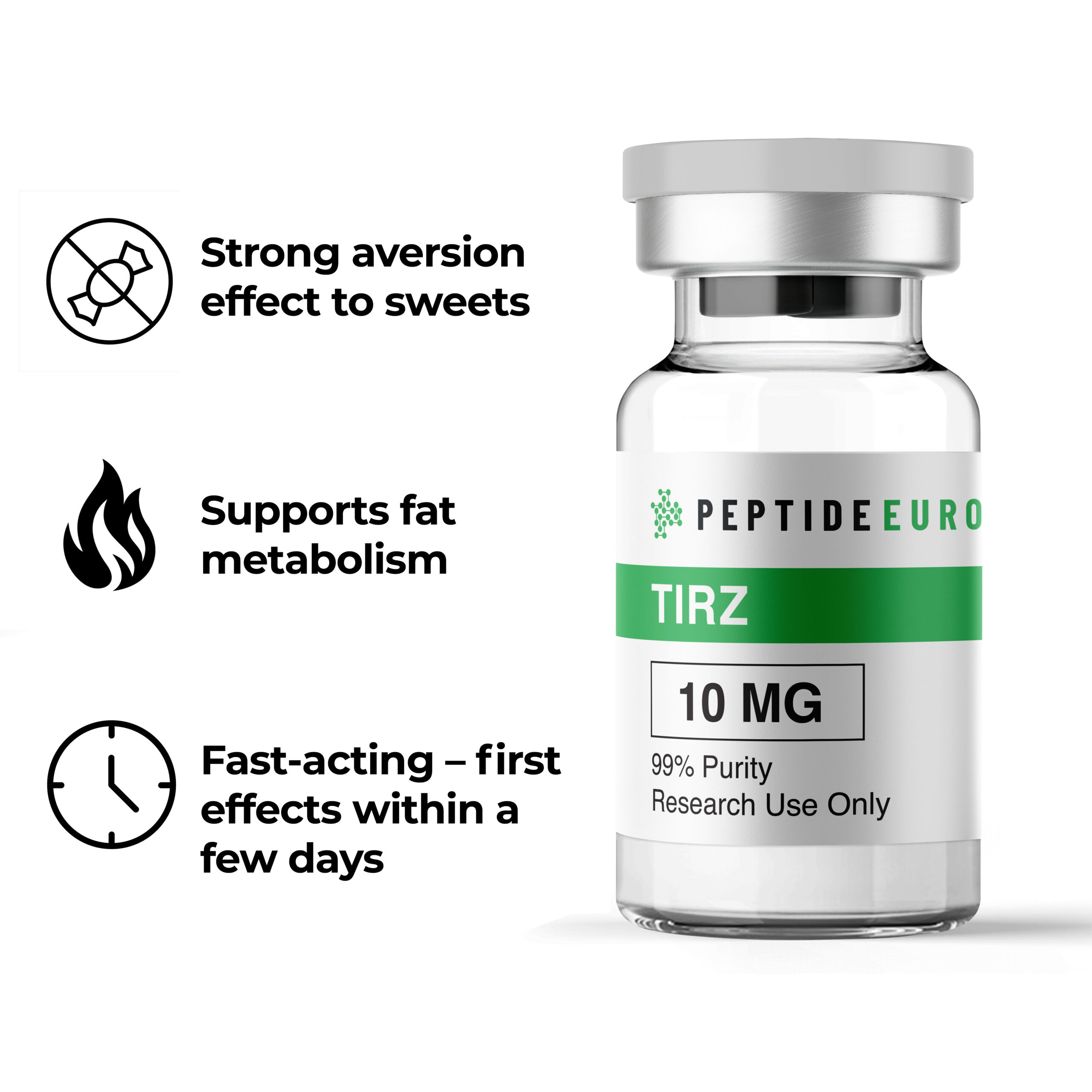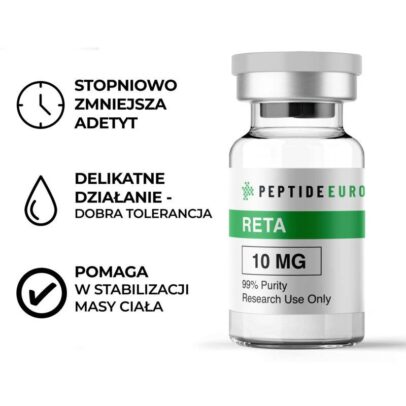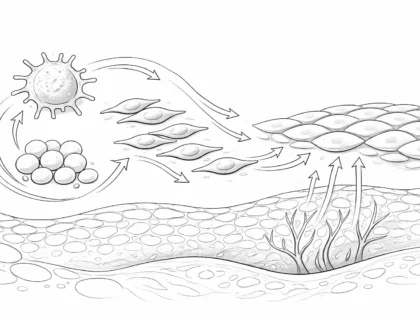Diphtheria – A Forgotten Danger That Returns
-
PepEurope
- Posted on
- 0 comments

In recent years, diphtheria, a disease once almost eradicated, has quietly returned. This highly contagious and potentially deadly infection is making headlines again, especially with outbreaks reported in parts of the world. Despite medical advances, diphtheria remains a serious threat because vaccinations are incomplete or neglected. This is a wake-up call for public health and an important reminder that some diseases never truly disappear.
What is diphtheria and why is it dangerous?
Diphtheria is caused by the bacteria Corynebacterium diphtheriae. It primarily affects the upper respiratory tract, throat, and tonsils, but can also affect the skin and other mucous membranes. The bacteria spread easily through airborne droplets when an infected person coughs or sneezes, or through direct contact with secretions or contaminated objects.
Symptoms usually begin with fever, sore throat, chills, and difficulty swallowing. As the disease progresses, the lymph nodes enlarge, and a characteristic thick, white-gray membrane appears on the throat and tonsils, which can narrow the airways and cause severe breathing difficulties. This dangerous narrowing has earned diphtheria the nickname "choking angel."
In addition to respiratory symptoms, diphtheria can produce a toxin that damages vital organs such as the heart, kidneys, and nervous system. Without prompt treatment, serious complications can occur, including cardiac arrhythmia, paralysis, and even death. Mortality rates in untreated cases can range from 30 to 50%.
Sema Beauty & Slim (weight control / healthy skin)
Sema Metabolic Boost (Appetite / Metabolism / Energy)
Metabolic Boost Duo (Appetite Suppression / Energy / Metabolism)
Sleep and Slim Pack (weight control / sleep regeneration)
Epidemic 2023-2024: Alarm Signal
In 2023, Pakistan experienced a major diphtheria outbreak that led to hundreds of deaths. The situation was exacerbated by fake vaccines and a slow government response, highlighting the tragic consequences of neglected vaccinations and misinformation. The outbreak was a warning that diphtheria is still a threat, especially in overpopulated regions with low vaccination rates.
Such outbreaks can have global consequences. Travelers and migrants can unknowingly carry the bacteria across borders, exposing even countries with historically low rates of diphtheria.
What Poland and other countries are doing well
Poland is an excellent example of how a well-organized vaccination program can control diphtheria. Since the mid-1950s Polish Instructions Government Diphtheria Vaccinations. 20th century diphtheria vaccinations are mandatory in Poland, with a carefully planned schedule that includes:
- Four basic doses given during infancy up to 1.5 years of age
- Booster doses at 6, 14 and 19 years of age
- Recommended booster doses for adults every 10 years, combined with tetanus and pertussis vaccinations
The importance of mandatory vaccinations:
- They drastically reduce the incidence and severity of disease
- They protect vulnerable people, including those who cannot be vaccinated
- They help maintain herd immunity, preventing outbreaks of epidemics
Thanks to such programs, Poland and many other European countries maintain low diphtheria rates. Health authorities also educate citizens about the importance of keeping vaccinations up to date throughout life.
Sema Beauty & Slim (weight control / healthy skin)
Sema Metabolic Boost (Appetite / Metabolism / Energy)
Metabolic Boost Duo (Appetite Suppression / Energy / Metabolism)
Sleep and Slim Pack (weight control / sleep regeneration)
How to treat diphtheria?
Diagnosis of diphtheria begins with a clinical evaluation, where doctors look for characteristic symptoms and review the patient's history. Confirmation requires laboratory tests that isolate the bacteria Corynebacterium diphtheriae or test for toxin production.
Once diagnosed, diphtheria requires immediate hospitalization. Treatment consists of:
- Administration of diphtheria antitoxin, serum containing antibodies that neutralize the toxin
- Using antibiotics to fight bacterial infection
- Supportive care to alleviate breathing problems and complications
Early treatment is key. Without it, the disease can be fatal in almost half of cases.
IN Wikipedia in the report on the treatment of diphtheria, it is written that early administration of anti-diphtheria serum is essential. Antibiotics are used in case of concomitant secondary infections. Supportive care includes vitamins, and in severe cases it is necessary to establish a clear airway, e.g. intubation or tracheotomy. Hospitalization is necessary.
Diphtheria vaccination: the best protection
Vaccination remains the most effective defense against diphtheria. A full vaccination course protects 87-99% people from getting the disease. The Polish vaccination schedule, which begins in childhood and continues with booster doses in adulthood, is designed to maintain this protection throughout life.
Even vaccinated people should receive booster doses every 10 years to maintain immunity, as protection wanes over time. These booster doses are often combined with tetanus and whooping cough vaccines to provide comprehensive protection.
In unvaccinated individuals, diphtheria can progress rapidly and lead to severe complications or death, making vaccination not only a personal choice but a public health necessity.
Risk beyond borders
The fight against diphtheria is not over yet. Global travel, migration, and uneven vaccination rates create a constant risk of outbreaks, even in countries that have largely controlled the disease. Travelers to areas where diphtheria is endemic, especially those who are unvaccinated or have weakened immune systems, are at greater risk.
Maintaining high vaccination rates worldwide, rapid response to outbreaks, and public education are key to containing diphtheria.
Tirz Active Formula 10 mg (GLP-1 + GIP)
Reta Support Formula 10mg (GLP-1 + GIP + GCGR)
How Peptides Boost Immunity and Energy
Beyond vaccinations, new research shows that peptides can support immune function and overall vitality. Peptides are short chains of amino acids that act as messengers, helping to regulate immune response and cell repair.
Specific peptides such as SEM, RET, CARGI, MAZDU, TIRZ, have shown the ability to support weight loss and immune system efficiency by stimulating T cells, which are key in fighting infections. Others, such as BPC-157, support tissue healing and reduce inflammation, which may improve recovery from illness.
Beyond immune function, peptides can increase energy levels, reduce fatigue, and improve muscle recovery, making them a promising complement to health and immunity, although they do not replace vaccinations or traditional medical treatments.
Frequently asked questions
Can you get diphtheria despite vaccination?
Although vaccination is very effective, no vaccine provides 100% protection. Therefore, booster doses are recommended every 10 years to maintain immunity.
Is diphtheria transmitted through the air or by contact?
It is transmitted mainly through air droplets, but also by contact with contaminated objects or secretions.
What is the mortality rate without treatment?
Untreated diphtheria can be fatal in 30-50% cases, especially in children.
How long does immunity last after vaccination?
Immunity lasts for several years, but weakens over time, so booster doses are necessary.
Is diphtheria common today?
Diphtheria is rare in countries with strong vaccination programs, but remains endemic in parts of Africa, Asia, and the Americas.
Summary: Remembering What We Forgot
Diphtheria may seem like a disease of the past, but recent outbreaks have proven it is a real and present threat. With effective vaccination programs, countries like Poland are keeping this threat in check. However, overconfidence, misinformation, and gaps in vaccinations can quickly reverse this progress.
Vaccination is not just a personal choice, it is a responsibility to protect ourselves, our communities and future generations. Staying informed, keeping up with vaccinations and supporting innovations such as peptide therapies can help us stop diphtheria and other infectious diseases.












